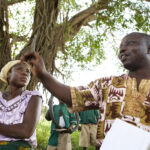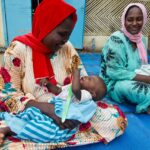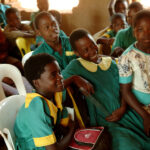Provided HIV/Aids education for 100 farm leaders raising awareness for their communities.
Jan 2012United Purpose
Charity Partner
Raised enough to provide training in HIV/Aids prevention for 100 Farm Leaders in Kenya, who will in turn be able to provide education and awareness for the surrounding communities.
This month’s chosen charity is Concern Universal once more but this time relates to its work in Ghana. In June 2011 the charity received a grant of US$699,940 from The Alliance for a Green Revolution in Africa to develop market access and post harvest services for smallholder farmers in BrongAhafo, Ghana. The project is working with maize farmers to improve access to markets by stimulating competitive Farmer Based Organizations. The project is aiming to reduce postharvest losses and increase volumes and value of sales for 10,000 farmers. The charity is intent upon equipping farmers with good quality information on AIDS prevention and management. This ‘butterfly effect’, will translate economic activity into educational and disease prevention impacts. The trained farmer groups will act as health promotion agents. They will promote awareness of safe and healthy sexual behaviour among the farmers (men and women) and encourage a comprehensive understanding of AIDS among whole communities. A thousand pounds provides the budget to train 100 leaders for these farmer groups.
AIDS in Ghana is mainly contracted through unprotected sexual intercourse. Because the disease is most prevalent among the productive adult age group, this has clear social and economic consequences for patients, their families and whole communities. The disease creates orphans and it limits the working capacity of adults infected, as well as placing a high burden on the limited availability of effective healthcare in the country. Research in Ghana has identified that reducing infection rates depends on improving lay awareness about disease transmission and, in turn, that educational shift is a product of increased economic activity. The current low literacy level, especially among women, is central to this challenge because economic activity, basic education and disease prevalence are now known to be inter-linked.



